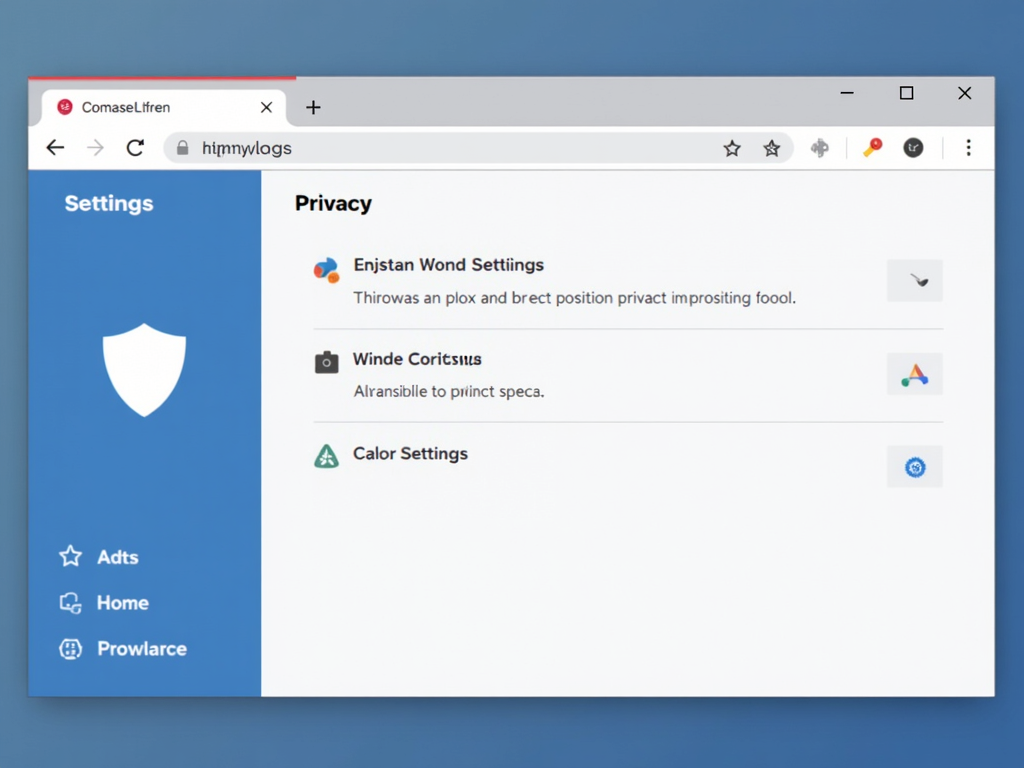VPNs and Browsers: The Perfect Privacy Pair
Overview: In today's digital world, protecting your online privacy is more important than ever. VPNs and privacy-focused browsers are two powerful tools that work together to keep your data safe. This article explores how they complement each other and provides insights into the best privacy browsers and essential tools for beginners.
What are VPNs and Privacy Browsers?
A Virtual Private Network (VPN) is a service that encrypts your internet connection and routes it through a server in a different location. This hides your IP address and protects your data from prying eyes.
Privacy browsers, on the other hand, are web browsers designed with privacy in mind. They often include features like ad blockers, tracker blockers, and enhanced security settings to prevent websites from collecting your data.
Why are They Important?
Using a VPN and a privacy browser together provides a double layer of protection. The VPN encrypts your connection, while the browser blocks trackers and ads that could compromise your privacy. This combination is especially useful when browsing on public Wi-Fi networks, where your data is more vulnerable.
Personal Anecdote
I once used a VPN and a privacy browser while working from a café. Despite being on a public network, I felt secure knowing my data was encrypted and my browsing activity was private. It's a simple yet effective way to protect yourself online.

Best Privacy Browsers for Everyday Use
Here are some of the best privacy browsers you can use daily:
1. Tor Browser: Known for its anonymity, Tor routes your traffic through multiple servers, making it difficult to track your online activity.
2. Brave: This browser blocks ads and trackers by default and offers a built-in VPN for added security.
3. Firefox with Privacy Extensions: Firefox is highly customizable. By adding extensions like uBlock Origin and Privacy Badger, you can enhance its privacy features.
Essential Online Privacy Tools for Beginners
In addition to VPNs and privacy browsers, here are some essential tools for maintaining online privacy:
- Password Managers: Tools like LastPass or Bitwarden help you create and store strong, unique passwords for each of your accounts.
- Ad Blockers: Extensions like uBlock Origin block ads and trackers, preventing websites from collecting your data.
- Encrypted Messaging Apps: Apps like Signal or WhatsApp use end-to-end encryption to keep your conversations private.
How VPNs and Browsers Work Together
When you use a VPN, your internet traffic is encrypted and routed through a secure server. This hides your IP address and protects your data from hackers and snoopers. A privacy browser adds another layer of protection by blocking trackers and ads that could still collect your data, even with a VPN.
For example, if you're browsing on a privacy browser without a VPN, websites can still see your IP address. Conversely, if you're using a VPN without a privacy browser, websites can still track your activity through cookies and other methods. Together, they provide comprehensive protection.
Comparison Table: Privacy Browsers
| Browser | Key Features | Ease of Use |
|---------|--------------|-------------|
| Tor | Anonymity, multi-layered encryption | Moderate |
| Brave | Ad and tracker blocking, built-in VPN | Easy |
| Firefox | Customizable with privacy extensions | Easy |
List: Essential Privacy Tools
- Password Managers: Securely store and generate strong passwords.
- Ad Blockers: Block ads and trackers to protect your data.
- Encrypted Messaging Apps: Keep your conversations private with end-to-end encryption.

Summary
In conclusion, VPNs and privacy browsers are essential tools for protecting your online privacy. By using them together, you can ensure your data remains secure, even on public networks. Additionally, tools like password managers and ad blockers provide further protection. Start incorporating these tools into your daily routine to safeguard your digital life.